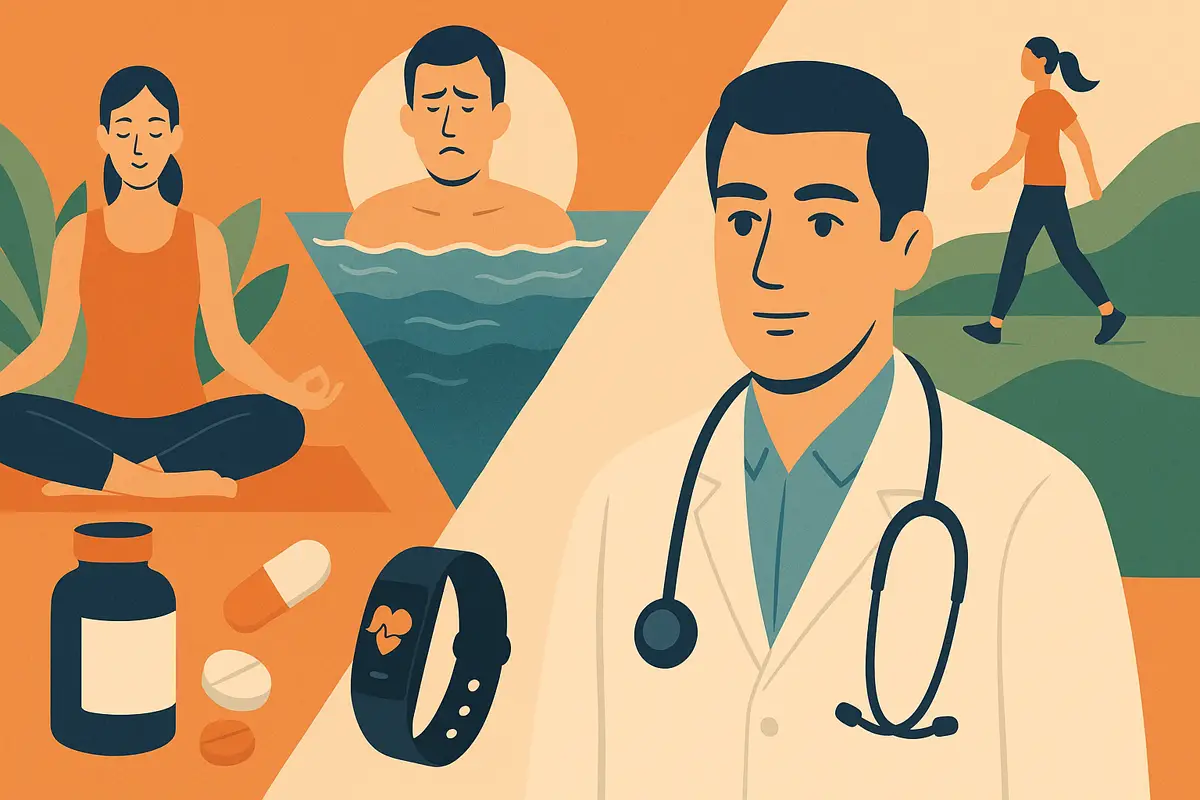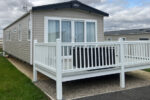What a GP Really Thinks About the Wellness Hacks We’re All Trying

You’ve witnessed the wellness industry explode from simple yoga classes and organic food into a multi-billion-pound empire that reaches into every corner of your life. What started as genuine self-care has morphed into something far more complex and potentially expensive. It’s time you heard some straight talk from the frontlines of healthcare about what actually works, what’s just expensive placebo, and how you can navigate this wellness minefield without losing your sanity.
But what does someone who actually sees patients every day think about all this? Dr. Giuseppe Aragona, an experienced GP, has watched the wellness boom unfold from the medical frontline.
The Professional Paradox
Here’s what’s fascinating about Yorkshire’s wellness landscape. In Harrogate, patients rock up with detailed spreadsheets of their biometrics. Bags full of supplements. The latest tracking gadgets. Twenty minutes later? Someone from a deprived area can’t afford basic medication.
“It’s surreal,” Dr. Aragona admits. “One patient spends £300 on wellness gadgets. The next can’t buy their prescription.”
Yorkshire faces some of England’s biggest health inequalities. Yet wellness spending soars. Maybe we’re looking in the wrong places for health solutions?
Ice Bath Mania: Cold Comfort
You can’t escape the ice bath videos. Celebrities dunking themselves at dawn. Testimonials about life-changing cold plunges. Yorkshire’s embraced this hard, converted shipping containers at festivals and dedicated cold therapy centres from Sheffield to York. The science is actually promising. Cold exposure boosts circulation, reduces inflammation, might help mood. But here’s the GP reality check.
“I’ve had patients in A&E with hypothermia,” Dr. Aragona says. “Heart rhythm problems from unsupervised cold exposure. Benefits are real. So are the risks.”
That beck in the Dales looks tempting. But maybe start with a cold shower?
Mindfulness: The Good, The Commodified
Yorkshire’s gone big on mindfulness. Meditation groups in every community centre. Walking meditation across the Moors. And honestly? This one’s got proper science behind it.
“Mindfulness genuinely helps,” Dr. Aragona confirms. “Anxiety, sleep, stress management. I’ve seen patients reduce anxiety medication through consistent practice.” But, it’s not therapy. Clinical depression needs professional help. Mindfulness is brilliant addition, not replacement.
Plus, can we talk about how everything’s been mindful-washed? Mindful dishwashing. Mindful commuting. Sometimes you just need to do the dishes.
Supplement Chaos
Pop into any Yorkshire health store. Overwhelm guaranteed. Shelves packed with promises in bottles. Energy boosters, brain enhancers, life changers. The global supplement industry? £122 billion. We’re definitely contributing.
Dr. Aragona sees the aftermath daily. “Patients bring lists of 20-30 supplements Sometimes creating genuine problems.” Most of us get what we need from food. Vitamin D in Yorkshire winters? Makes sense. Folic acid if pregnant? Absolutely. That £50 nootropic blend? Expensive and not really required.
Worse, “natural” doesn’t mean safe. Blood-thinning supplements interfering with heart meds. Liver damage from “harmless” herbs. Nature’s got a dark side too.
Biohacking: When Data Becomes Drama
Fitness trackers, sleep monitors, glucose monitors for non-diabetics. Yorkshire’s tech enthusiasts measure everything from heart rate variability to ketone levels. Some of this helps. Sleep tracking reveals patterns. Activity monitors encourage movement. But Dr. Aragona’s spotted concerning trends.
“More anxiety around health data,” he explains. “People obsess over optimising numbers. Forget to actually live.”
One patient checked glucose 40 times daily. Normal blood sugar, abnormal stress levels. Another couldn’t sleep without the perfect sleep score. The tools meant to help were causing harm.
Yorkshire’s Secret Wellness Weapons
Here’s where we get it right. Our landscape naturally promotes brilliant wellness practices. Sunday walks across the Pennines? That’s medicine disguised as fun. Nature time reduces stress hormones, improves mood, boosts immunity. Social connection from walking groups? Protects against depression and cognitive decline.
“Yorkshire’s got built-in advantages,” Dr. Aragona notes. “Dales, Moors, coast are natural mood boosters. Sometimes the best wellness hack is just getting outside.” No subscription required.
What Actually Works (Boring But True)
After thousands of patients and countless wellness trends, Dr. Aragona’s prescription is surprisingly simple. Regular movement. Not necessarily gym torture. Just consistent activity. Adequate sleep – 7-9 hours for most adults. Diet with plenty of vegetables, some protein, not too much processed nonsense. Social connections. Stress management that actually works for you.
But there’s one thing that sabotages all of this before you even start. “If you smoke, quit first,” Dr. Aragona says bluntly. “Everything else becomes exponentially harder when you’re fighting cigarettes too. Your sleep suffers, exercise feels impossible, stress actually gets worse despite what nicotine tells you.” The NHS has brilliant support programs, and some patients find medications like Champix genuinely transformative when willpower isn’t enough. “It’s not about weakness; it’s about using every tool available.”
Don’t chase every trend. Instead, focus on the fundamentals that actually move the needle.
The Dangerous Hacks
Some trends sound harmless but cause problems:
Grounding: Walking barefoot feels lovely. Claims about absorbing earth’s electrons to cure inflammation? Marketing genius, medical nonsense.
Alkaline water: Your kidneys and lungs handle pH balance brilliantly. Without £5-per-bottle assistance.
Detox cleanses: Your liver detoxes 24/7 for free. There can be dangerous electrolyte imbalances from extreme cleanses. Your body doesn’t need £200 juice cleanses. It needs regular, nutritious food.
The Future of Feeling Good
The wellness industry isn’t disappearing. That’s not necessarily bad. Some innovations genuinely help. Increased interest in preventive health is positive.
The key? Integration. More collaboration between wellness and medical care. Yoga instructors who know when to refer to GPs. Supplement companies providing honest interaction information. Wellness centres prioritising safety alongside Instagram moments.
The Real Deal
The most effective wellness ‘hacks’ aren’t hacks. They’re consistent, evidence-based habits that might not photograph well but genuinely improve life. Before trying the latest trend, ask: Is this sustainable? Safe? Does it complement proven health practices? If you’re dealing with serious health issues, is your GP involved?
Yorkshire’s got natural health advantages. Our landscapes, communities, strong NHS presence. Sometimes, the most radical wellness hack is consistently doing the basics. Your future self will thank you.










